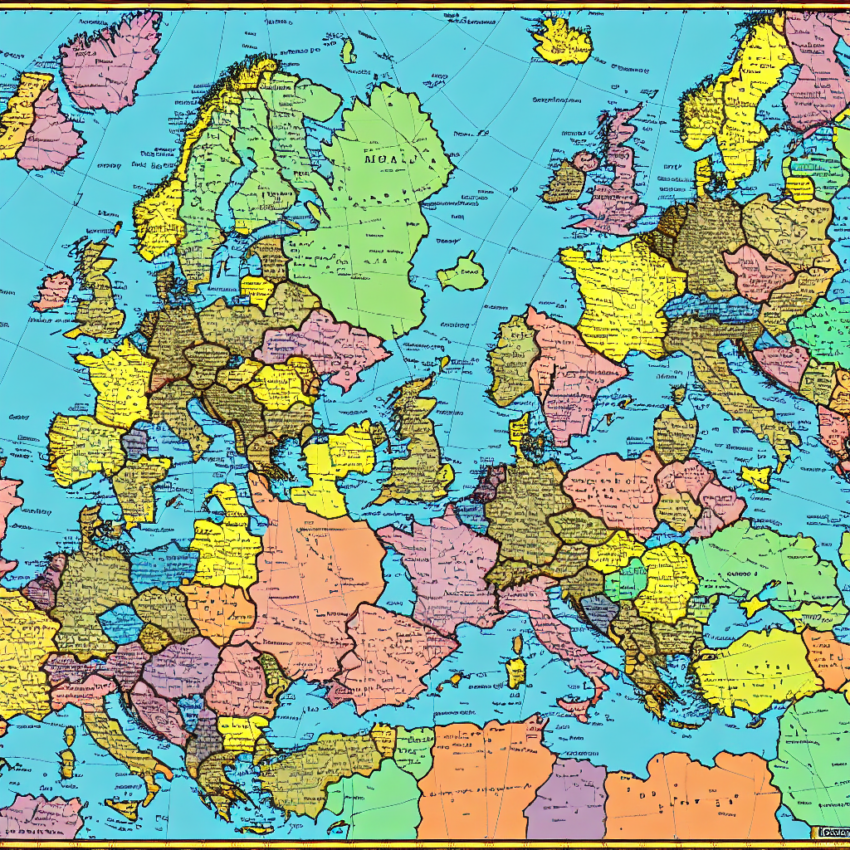This is probably the most elaborate explanation ever to this question.
The question of whether or not Europe is a country is a complex one, as the concept of Europe is multifaceted and has changed over time.
Geographically, Europe is the westernmost peninsula of the Eurasian continent, which is made up of Europe, Asia, and Africa. Europe is bordered by the Arctic Ocean to the north, the Atlantic Ocean to the west, the Mediterranean Sea to the south, and the Black Sea and the Caucasus Mountains to the east. Europe is home to 50 countries, including well-known ones such as Francea-madeby=”internallinker” href=”https://under1000words.com/Francea-madeby=”internallinker” href=”https://under1000words.com/Francea-madeby=”internallinker” href=”https://under1000words.com/Francea-madeby=”internallinker” href=”https://under1000words.com/Francea-madeby=”internallinker” href=”https://under1000words.com/Francea-madeby=”internallinker” href=”https://under1000words.com/Francea-madeby=”internallinker” href=”https://under1000words.com/Francea-madeby=”internallinker” href=”https://under1000words.com/Francea-madeby=”internallinker” href=”https://under1000words.com/france/”>france/”>France/”>France/”>France/”>france/”>France/”>France/”>France/”>France, Germany, and Italy, as well as smaller ones such as Luxembourg and Malta.
Historically, Europe has played a central role in the development of Western culture, science, and politics. The ancient Greeks, who lived in what is now modern-day Greece, are often credited with laying the foundations of Western thought and culture, and the Roman Empire, which included much of Europe and parts of Africa and Asia, was a major political and military power for centuries. Europe has also been a key player in the development of modern democracy, capitalism, and the scientific revolution.
Politically, Europe is not a country, but rather a continent made up of many independent countries. These countries have their own governments, laws, and cultures, and are sovereign states that are not controlled by any other country. However, many of the countries in Europe have formed regional organizations to facilitate cooperation and collaboration. The most well-known of these is the European Union (EU), which is a political and economic union of 27 European countries. The EU was created in the aftermath of World War II to promote peace and stability in Europe, and it has since become a major economic and political force. However, membership in the EU is voluntary, and not all European countries are members.
In conclusion, while Europe is not a country in the traditional sense, it is a complex and diverse continent that is home to 50 independent countries and has played a significant role in the development of Western culture, science, and politics. It is also home to regional organizations, such as the EU, that facilitate cooperation and collaboration among its member countries.
who are the people who think Europe is a country?
t is not uncommon for people to think that Europe is a country, especially if they are not well-versed in geography or European history. This misconception may be more prevalent among people who are not from Europe or who have not had much exposure to the continent. It could also be more common among people who are not particularly interested in geography or current events, and therefore may not be aware of the complex political and cultural landscape of Europe.
It is worth noting that Europe is often referred to as a “continent,” which can contribute to the confusion. In everyday language, the word “continent” is often used to refer to a large landmass or a major area of the world, and people may therefore assume that Europe is a single country rather than a continent made up of many independent countries.
It is also possible that some people may intentionally refer to Europe as a country in order to simplify or generalize information. For example, a news article might refer to “the European market” in order to describe the economic conditions in the European Union (EU) or in a group of European countries. In this case, the use of the word “European” is intended to convey a broad, regional context rather than a specific, national one.
Overall, the belief that Europe is a country is likely to be more common among people who are not well-informed about European geography and politics, or who are using the word “Europe” in a generalized or simplified manner.
Will Europe become one day a single country?
There have been various proposals and movements over the years for the countries of Europe to form a closer political and economic union, and some people believe that Europe could eventually become a single country. However, at present, there is no concrete plan or timeline for Europe to become a single country, and it is difficult to predict what the future might hold.
The European Union (EU) is a political and economic union of 27 European countries that was created in the aftermath of World War II to promote peace and stability in Europe. The EU has progressively increased cooperation and integration among its member countries over the years, and it has many of the characteristics of a single country, such as a common currency (the euro), a single market, and a system of laws that applies to all member states. However, the EU is not a country in the traditional sense, as its member states retain their own governments, laws, and cultures, and are sovereign states that are not controlled by any other country.
It is possible that the EU could evolve and become more integrated over time, potentially leading to a closer political and economic union among its member countries. However, the process of integration is likely to be slow and incremental, and it is not guaranteed that it will happen. There are also many challenges and obstacles to overcome, including differences in language, culture, and politics among the member states, and the need to balance the interests of all member countries.
In conclusion, while it is possible that Europe could become more integrated and unified over time, it is currently not a single country, and there is no specific plan or timeline for it to become one.
Tags: country, EU, europe, geography, Politics
Tweet